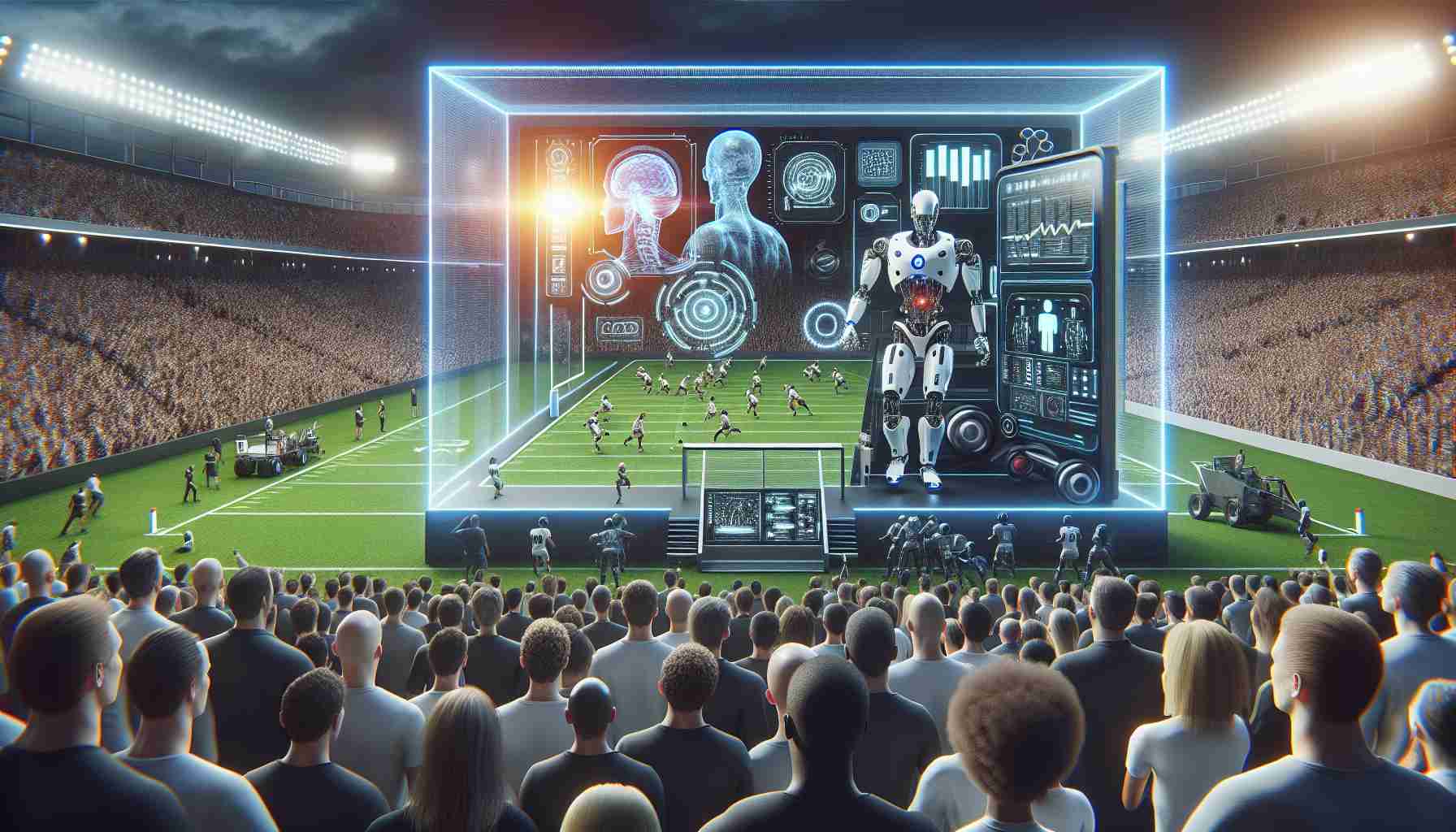The intersection of technology and sports is revolutionizing how the game of football is played. As programs like Sam Houston State University pursue innovative coaching talents, artificial intelligence (AI) is at the forefront of conversations about the future of football coaching.
Harnessing AI for Strategic Brilliance
AI technology is quickly becoming a game-changer in sports strategy. With an extensive coaching career under his belt, Phil Longo exemplifies the type of leader who could leverage AI to enhance traditional tactics. By analyzing player performance and predicting opponents’ moves, AI systems offer real-time insights that could redefine how coaches formulate their strategies.
The Power of Data
Picture a scenario where coaches can tap into AI’s rapid data processing to choose plays based on the opposing team’s weaknesses. This innovative use of AI not only streamlines decision-making but also puts coaches in a position to tailor their approaches dynamically during games.
Navigating Challenges Ahead
However, the rise of AI brings forth questions about the importance of human intuition in coaching. While data-driven insights can offer significant advantages, can they replace the nuanced judgments made by seasoned coaches like Longo? As Sam Houston prepares for new challenges, a collaboration between AI technology and human experience may pave the way for a new era in football, merging innovation with the tradition that inspires teams.
Football’s future is bright, with AI poised to play a crucial role in how the sport evolves.
The Future of Football: How AI is Transforming the Game
Harnessing AI for Strategic Brilliance
The integration of artificial intelligence (AI) in sports, particularly football, is marking a transformative era, revolutionizing coaching practices and athletic performance. Innovative coaching leaders, such as those at Sam Houston State University, are exploring the potential of AI to enhance traditional game strategies. By leveraging AI-driven analytics, coaches can gain profound insights into player performance and opponent tendencies, fundamentally altering how football strategies are developed and implemented.
The Power of Data
Imagine a football game where coaches have instantaneous access to AI-generated data that informs their every decision. This technology allows coaches to analyze opposing teams’ strengths and weaknesses on-the-fly, paving the way for optimized play selections that adapt to real-time changes during the game. Enhanced data processing capabilities mean that crucial strategies can be updated almost instantaneously, improving the likelihood of success on the field.
Pros and Cons of AI in Football Coaching
Pros:
– Real-time Analytics: Coaches receive immediate feedback and analytics during games, helping them make smarter decisions.
– Injury Prevention: AI can analyze player data to predict potential injuries, allowing for better management of player health.
– Customized Training: Tailored training programs can be created based on individual player performance metrics.
Cons:
– Over-reliance on Technology: There’s a risk that teams might depend too heavily on data, undermining the human aspects of coaching.
– Cost Implications: Implementing advanced AI systems can be expensive, potentially widening the gap between well-funded programs and smaller teams.
– Devaluation of Experience: The importance of seasoned coaching intuition might be diminished with a focus on data-driven strategies.
Navigating Challenges Ahead
While the advantages of AI integration are substantial, it poses significant philosophical and practical challenges. As teams like Sam Houston blend technology with traditional coaching methods, one of the core questions remains: Can AI replace the instinctual decision-making skills honed over years of experience? The answer may lie in a balanced approach, where AI tools augment rather than replace human judgment.
Use Cases of AI in Football
– Scouting: AI tools can process video footage to identify talent and assess player potential far beyond traditional scouting methods.
– Game Strategy Optimization: Teams use AI to study matchups and simulate game scenarios, helping coaches devise bespoke strategies tailored to opponents.
– Player Development: By continuously analyzing player statistics and health data, AI can assist in developing personalized training programs that optimize player performance.
Market Analysis and Future Trends
The sports technology market is witnessing substantial growth, with projections indicating a surge in investments toward AI applications within sports. As more football programs adopt these cutting-edge technologies, the future may see a landscape where AI is a standard component of coaching and game management. With ongoing advancements, high-profile partnerships between tech firms and sports organizations are likely to emerge, leading to further innovations and insights that revolutionize the game.
Security Aspects of AI in Sports
As teams implement AI technologies, security considerations must not be overlooked. The collection and storage of extensive player data raise alarming concerns over data privacy and cybersecurity. Ensuring the integrity and confidentiality of this information will be critical as advancements in AI technology continue to evolve.
Conclusion
Football stands on the brink of a new chapter, driven by the potential of AI to redefine coaching and gameplay. As institutions like Sam Houston State University explore these innovations, the intersection of technology and sports promises to foster a future where data-driven insights and human experience work hand in hand to create a more strategic, engaging, and competitive game.
For more insights on AI in sports, visit ESPN.
